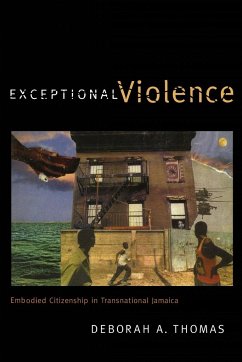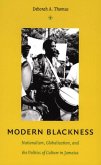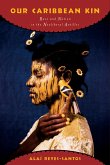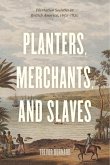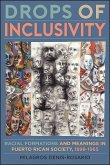Exceptional Violence is a sophisticated examination of postcolonial state formation in the Caribbean, considered across time and space, from the period of imperial New World expansion to the contemporary neoliberal era, and from neighborhood dynamics in Kingston to transnational socioeconomic and political fields. Deborah A. Thomas takes as her immediate focus violence in Jamaica and representations of that violence as they circulate within the country and abroad. Through an analysis encompassing Kingston communities, Jamaica's national media, works of popular culture, notions of respectability, practices of punishment and discipline during slavery, the effects of intensified migration, and Jamaica's national cultural policy, Thomas develops several arguments. Violence in Jamaica is the complicated result of a structural history of colonialism and underdevelopment, not a cultural characteristic passed from one generation to the next. Citizenship is embodied; scholars must be attentive to how race, gender, and sexuality have been made to matter over time. Suggesting that anthropologists in the United States should engage more deeply with history and political economy, Thomas mobilizes a concept of reparations as a framework for thinking, a rubric useful in its emphasis on structural and historical lineages.
Bitte wählen Sie Ihr Anliegen aus.
Rechnungen
Retourenschein anfordern
Bestellstatus
Storno

